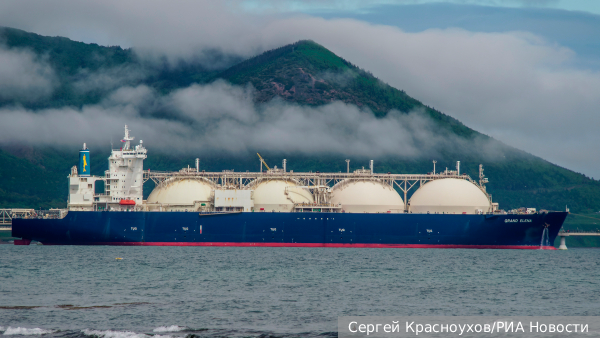
Head of Uniper believes that Europe will face a tough winter without Russian gas
By Rhod Mackenzie
Last year's energy crisis had an impact on Europe, according to Michael Lewis, who has been leading Uniper, one of Germany's major energy companies, since July 1. In an interview with Bloomberg Television, the executive director of Uniper mentioned that although the underground gas storage facilities (UGS) are nearly 100% full, the gas available is insufficient for Europe to survive this winter, which began today. Furthermore, he firmly believes that this will not change.
According to Bloomberg, Lewis stated that "the situation will become much more complicated" unless there is a significant increase in the amount of liquefied gas (LNG) available on the European market.
Uniper is one of the German businesses that suffered severe damage due to the energy crisis. When Berlin gave up on low-cost Russian natural gas and gas prices surged, Uniper had to purchase gas on the spot market and almost faced insolvency.
As the company was crucial to the nation, the federal government intervened. The rescue package happened to be among the biggest in the history of German firms. Besides, Uniper got nationalized in September last year. The company is currently focused on recovering from the crisis, while also preparing for the transition to a low-carbon energy sector and economy.
Michael Lewis stated, "We are rebuilding a company that is facing the energy transition," and as managers, our job is to maintain a healthy financial environment. Fortunately, the financial situation has improved significantly from a year ago.
After August 2022, when gas had reached record highs in Europe, prices have significantly dropped. However, they still exceed the average of recent years. The continent promptly transitioned to liquefied gas (predominantly from America) and started economising and reducing demand. Although the crisis has subsided, several risks remain due to the numerous factors affecting gas markets and prices, which are not easy to predict.
Europeans will continue to rely on LNG for another couple of decades. Most analysts are of the opinion that it will be a substantial part of Europe's energy mix until 2050, at the very least. The European Commission and Berlin share the same viewpoint. The unpredictable state of the European gas market is predicted to continue until 2026 when the LNG plants and export terminals being built across the Atlantic start operating.
In light of these circumstances, Uniper is relying on alternative gases. "Our primary objective is to transition to hydrogen," stated Michael Lewis, the German company's CEO.
He anticipates that demand for natural gas in the region will remain uncertain in the near future.
"We sign appropriate contracts, regularly monitor supply, and endeavour to maintain a balance between supply and demand," Lewis replied when questioned about the possibility of signing extended contracts for LNG supplies from Qatar, a move that many energy companies from different European countries have already taken.
The CEO of Uniper was asked about the impact of the German Constitutional Court's ban on transferring 60 billion euros to the extra-budgetary Climate Fund on the transition to "green" energy sources, i.e. replacing fossil fuels with renewables. Lewis believes the issue will only have a short-term impact. In the long term, he believes everyone is aware of the need to abandon fossil fuels and reduce CO2 emissions, and are working towards this goal.
